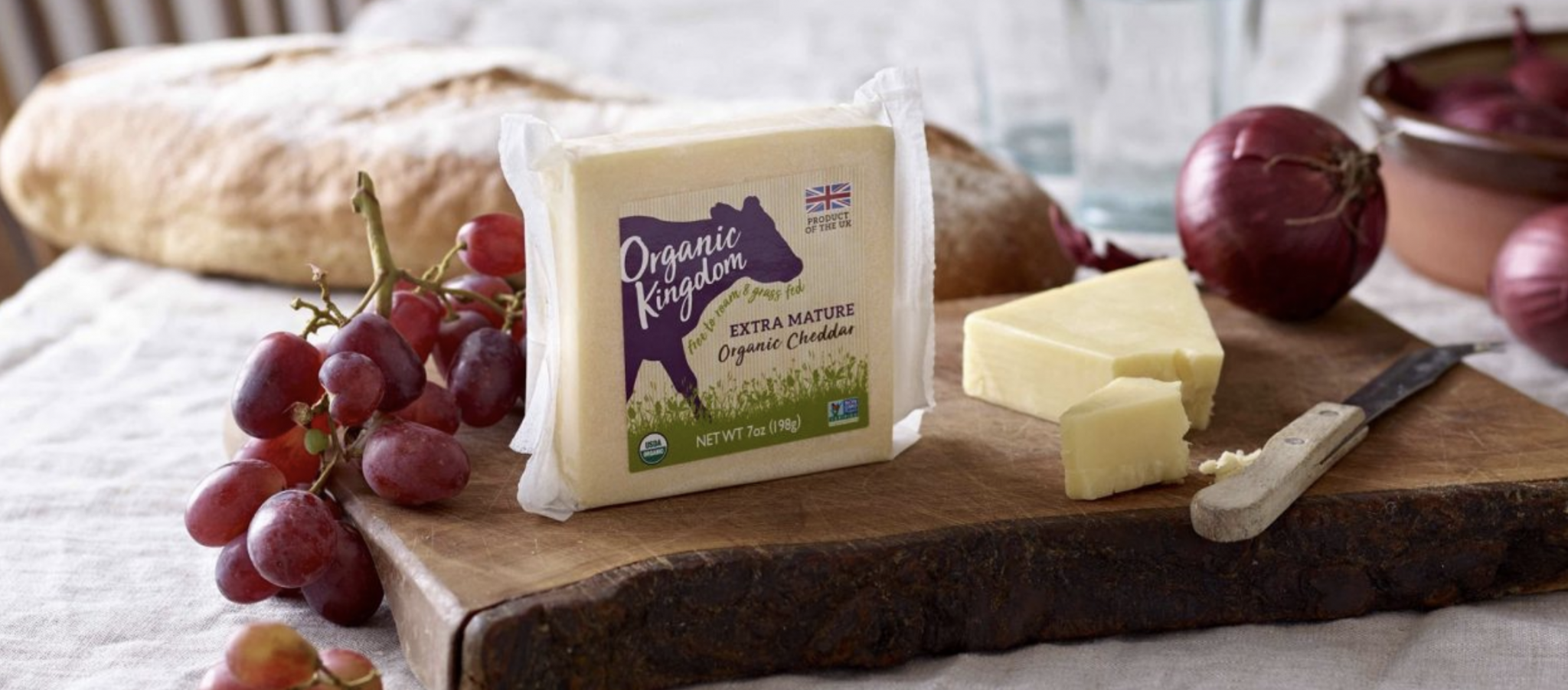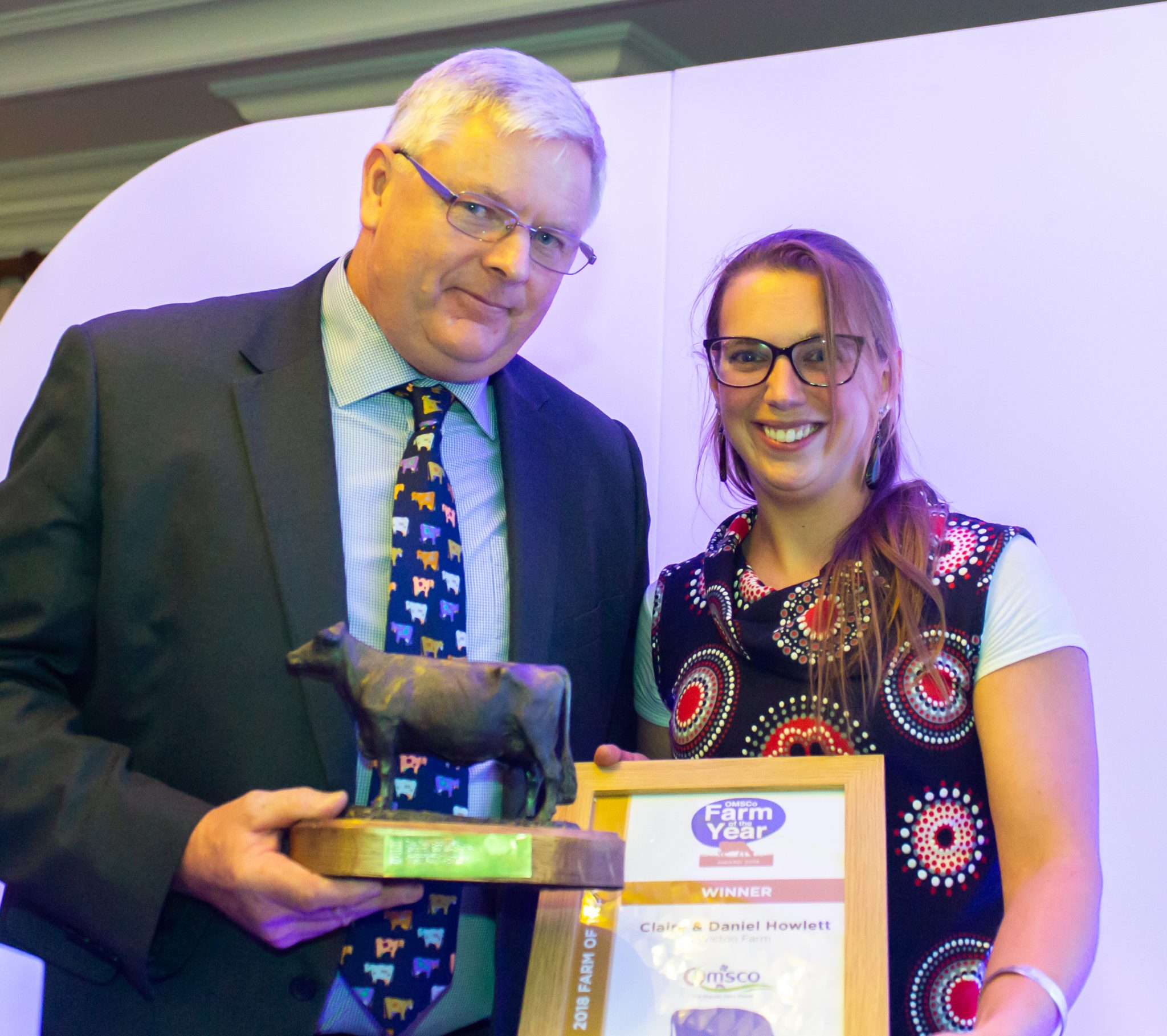UK dairy co-op Organic Milk Suppliers Cooperative witnessed an average increase of 1.65ppl (pence per litre) in member returns for the financial year ending 31 March 2018.
Chairman Nicholas Saphir said the current financial year is progressing well, and the co-op is exploring ways to spread risk through international market and product diversifications after Brexit.
Speaking at the annual OMSCo Together event, Mr Saphir said: “Although we anticipate considerably more organic milk becoming available in continental Europe over the coming months, and have witnessed oversupply in the USA, UK demand has recovered and we’re successfully balancing demand with supply. We’re continuing to manage the challenges of the global dairy market with the potential impact of an impending Brexit.”
The co-op has global alliances with Organic Valley and Eko Holland, and partnerships with UK and European processors, including Wyke and Alpavit.
“We also believe there are growing opportunities for OMSCo’s award-winning, US Department for Agriculture-certified cheese brand, Organic Kingdom, and organic butter in the USA,” added Mr Saphir.
The US market will continue to play a key role in the co-op’s long-term business strategy. Already, 25% of the milk produced by OMSCo has been approved by the USDA for export to the USA.
But the agreement could be in danger should the UK government be unable to secure on-going recognition of UK standards and a mutually acceptable future trade agreement.
“Dairy farming exports to Europe and the continuing use of toll processing, will solely depend on whether there is a hard, soft, or transitional Brexit,” he said.
“However, we continue to make progress through government lobbying, to ensure the mutual recognition of standards with the USDA once we leave the EU.
“The big challenge will be to see this recognition with Europe by 30 March 2019.”

UK environment secretary Michael Gove recently confirmed that UK businesses would require export health certificates to continue to trade with the EU, in the event of a no deal Brexit. The National Farmers’ Union has also raised concerns over the potential imposition of tariffs overnight. A no deal would see trade rules default to those of the World Trade Organisation (WTO), of which the UK is a member. The UK allowed the EU to make trade deals on its behalf and these will also have to be renegotiated after Brexit.
Speaking at the event, Conservative MP Mark Garnier, the UK’s regional trade envoy to the US, said the UK needed to think ‘more globally’, to capitalise on the ‘brave new world’ post-Brexit.
“There is strong demand for high-quality agricultural produce from UK farms, but we need to change our culture to one that seeks out global opportunities,” he said.
“With UK exports currently equating to around 27% of GDP – much lower than comparable economies such as Germany – we need to improve our export performance. Through the Trade Department, the government provides 186 offices in 107 countries around the world, to specifically help British exporters do just that.”
OMSCo aims for 40% of its future sales to come from exports and added-value dairy products.
Mr Saphir added: “As we focus on maintaining strategic relationships and existing trade agreements in Europe, we will also continue to drive opportunities for organic dairy on a global level.”
The OMSCo Together event also featured the award for the Farm of the Year 2018. The winners were brother and sister Daniel and Claire Howlett of Wicton Farm in Herefordshire. Their farm has been supplying OMSCo for 18 years.

OMSCo board member and competition judge Miles Saunders says that the panel were impressed with the Howlett’s “attention to detail, organisation and communication”.
“Claire and Daniel have an exceptional eye for detail and have built a profitable and successful business around this, scrutinising every component to allow for continual improvement,” he said.
Spread across 280 acres near Bromyard in Herefordshire, the farm currently milks 110 cows on an autumn block calving system, producing 8,500 litres/cow annually.
“Milk from forage is currently 3,846 litres/cow and margin over purchased feed sits at £2,516/cow, which is up there with some of the top performing farms,” added Mr Saunders.
The farm implements day to day management decisions based on a detailed blood and urine sampling procedure. “It’s great to see such a proactive approach to diet management and cow health, which allows the business to identify potential problems and address them quickly.
“Simple innovations such as viewing platforms for heat detection to improve conception rates, and a well-designed calving pen, that’s washed down between each use to reduce disease risk, were evident throughout the business,” said Mr Saunders. “The Howletts have worked hard to develop a system that’s sustainable and profitable for the family. They have a true passion for organic dairying and are leading the way through innovative practices. As a result, they’re very worthy winners of this national title.”

